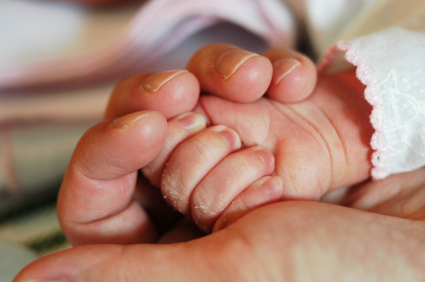
This phrase has become a popular refrain to say when those we know are facing trials. Like “cleanliness is next to godliness” it is often thought of as a biblical statement, and while it is not found in Scripture, I think it’s roots were probably planted there. The Bible has plenty to say about the need for letting go – we are, for example, to lay down our lives in order to follow Christ (Matt. 16:25). This requires an abdication of that which we once held dear, in order to follow Him who gave His very life for ours.
“Letting go” however, is no easy task. Early in life, being able to hold on to something is a sign of fine motor skill development. Parents encourage their young ones to grasp onto their finger and marvel at their child’s grip. This early lesson stays with us as we continue to amass possessions and priorities as we grow. We hold these things close to us, and deem them as “ours,” crying afoul when someone tries to take them from us.
Yet, God says, letting go of them is exactly what a Christian needs to do. No longer is it about “me”, “mine” and “my”, but about “Him” and “His.” We must relinquish control of our next steps, in order to follow where He leads. We must give up our right to the future that we have planned, in order to trust in the one He has orchestrated. We must let go of our desire to control, and let Him take the lead.
But in letting go, we are not left without something to hold on to. Instead of clinging to that which we desire, we are to cling to Him (Ps. 63:8). We are to hold on to the promises He has made, rather than the priorities that we have set. We are to be glad in what He has given, rather than what we’ve obtained. We let go of our life in order to hold on to His. And because it is to Him that we cling, we can persevere through any trial or temptation that comes our way. We don’t let go in order to give up. We let go in order to get Him.
Laying down what is “mine” in order to take up the Cross of Christ, is not easy. That’s why it must be a daily relinquishment (Luke 9:23). But what I gain in return is far greater than anything I must let go.
